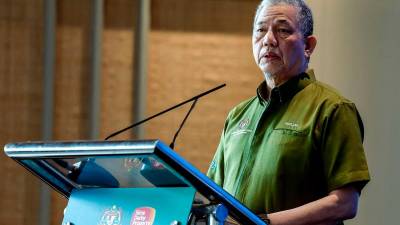SHAH ALAM: Malaysia is progressing steadily towards its renewable energy target, with the current energy mix already comprising 30% renewable sources.
Deputy Prime Minister Datuk Seri Fadillah Yusof confirmed the nation is nearing its goal of achieving a 31% renewable energy mix by the end of this year.
Fadillah, who also serves as the Minister of Energy Transition and Water Transformation, highlighted significant advancements since the National Energy Transition Roadmap (NETR) was introduced.
The government has approved the deployment of roughly 5.5 gigawatts of new renewable energy capacity, representing an investment value of RM20 billion.
“Since the launch of the NETR in July 2023, Malaysia has made tangible progress in its implementation, attracting at least RM25 billion of investment from both public and private sectors,” he said.
He further detailed the federal government’s commitment of a RM2 billion seed fund designed to stimulate new energy transition projects.
The Energy Efficiency and Conservation Act 2023 has already been enacted into law to support these efforts.
Fadillah also mentioned that the Carbon Capture, Utilisation and Storage Bill 2025 has been formally tabled for legislative consideration.
He made these statements during a media briefing following the launch of the country’s first residential solar project.
This pioneering solar initiative is being piloted within Sime Darby Property’s City of Elmina development.
The project introduces an innovative rooftop leasing model that eliminates the need for homeowners to make any upfront financial investment.
Households that choose to participate will earn income by leasing their rooftop space to the solar energy provider.
These participants will also be making a direct contribution to Malaysia’s broader transition towards green energy sources.
Prime Minister Datuk Seri Anwar Ibrahim previously announced an even more ambitious target for the nation’s renewable energy mix.
Malaysia is aiming to increase its renewable energy composition to 35% by the year 2030, a significant rise from the previous level of 29%.
Fadillah outlined several key ongoing efforts that are driving this transition forward.
These include the procurement process for large-scale solar photovoltaic plants with a collective capacity of 4,000 megawatts.
“Additionally, the Corporate Renewable Energy Supply Scheme (CRESS) was launched in July 2024, enabling companies to source or supply green electricity via the grid, thus providing a key mechanism for the uptake of RE,” he added.
He concluded by affirming that the National Energy Transition Roadmap has achieved credible progress across multiple sectors. – Bernama
